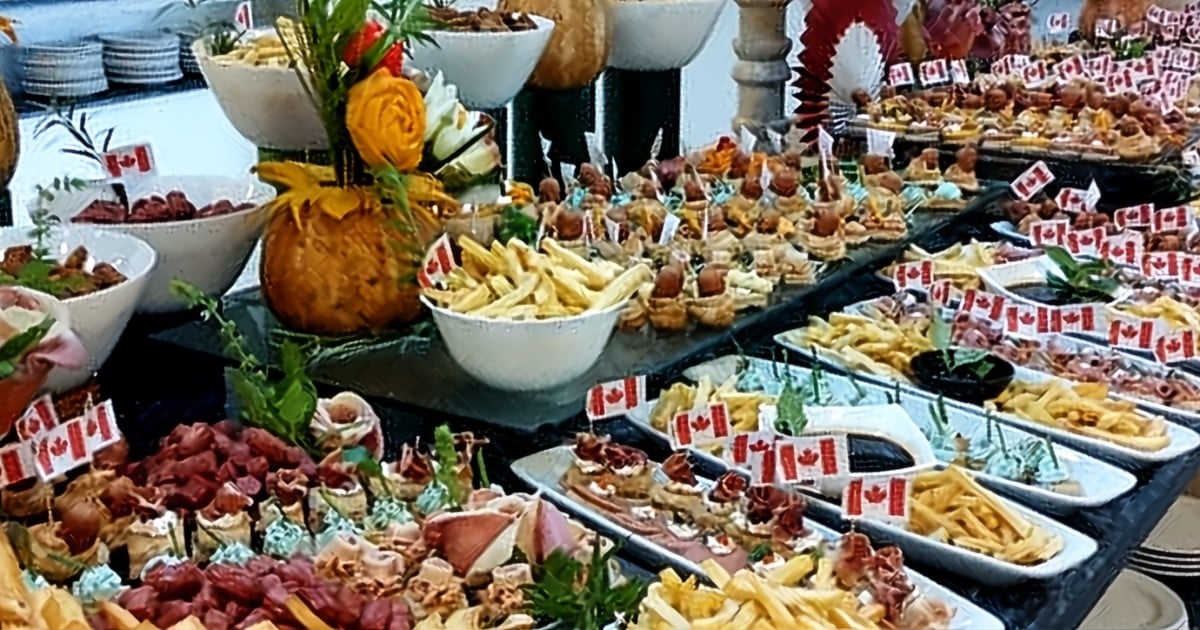The Spanish hotel chain, Barceló, has refuted claims of food shortages in Cuba by releasing images showcasing the culinary offerings at its Solymar resort in Varadero. "Food shortage in Cuba? Not at this moment," stated an anonymous participant in the Facebook group Barceló Solymar - Occidental Arenas Blancas, which was established by Alejandro Florat, the community manager for Barceló Group on the island.
In a surprising move, Barceló's post contradicts the reality acknowledged by both the Cuban regime and international bodies like the UN. The shared photos displayed a well-stocked buffet at their Varadero hotel, seemingly set up to welcome a group of Canadian guests, complete with Canadian flags as decorations.
Canadian Tourists Voice Their Discontent
Back in June, a Canadian tourist described his two-week stay at the resort as "the worst experience of his life." Joe Eastcott from Surrey, Canada, shared his ordeal in the same Facebook group, posting images that highlighted the severe deterioration of the facilities and the poor quality of the food.
His complaints echoed those of numerous other Canadian tourists who, in recent years, have voiced their dissatisfaction with Cuban hotels, capturing the attention of international media. The primary grievances include the scarcity and low quality of food available at these accommodations.
Decline in Canadian Tourism to Cuba
Canada, which has traditionally been the largest source of tourists for Cuba, has seen a decline in travelers and agencies interested in the island as a vacation destination. Recently, Samantha Taylor, the marketing director for Sunwing Vacations Group, a prominent Canadian travel agency, announced the removal of 26 Cuban hotels from their offerings due to quality issues highlighted in customer feedback.
In search of a more reliable experience for tourists, the agency has shifted its focus to destinations such as the Dominican Republic, Bahamas, Honduras, and Colombia. "What is a five-star hotel like in Cuba? What about a three-star hotel?" Taylor questioned, highlighting the need for transparency to avoid surprises for their Canadian clientele.
Energy Crisis and Its Impact
Taylor also acknowledged that Cuba's ongoing energy crisis has influenced their customers' perceptions, with many experiencing unexpected power outages even within hotel premises. "Cuba has faced some volatility in recent weeks, which can affect consumer confidence," she noted.
Barceló Hotels & Resorts merged two of its properties in February 2011 to create the Barceló Arenas Blancas-Solymar resort, featuring 883 rooms under an all-inclusive plan. In June 2019, Barceló Group was implicated in a collective lawsuit by Cuban-American families under the Helms-Burton Act, seeking compensation from Spanish, French, and Canadian hotel companies.
A notable case involved heir Diego Trinidad, who sought reparations from the Spanish group for the Barceló Solymar hotel in Varadero, built on land owned by his ancestor, Diego Cosme Trinidad Valdés, a tobacco company owner.
Barceló's Diminished Presence in Cuba
Founded in 1931 and now a major player in the global tourism industry, Barceló Group operates 300 hotels across 28 countries and 1,643 travel agencies on three continents. However, its presence in Cuba has dwindled over the years. From managing six properties in 2010, including Barceló Arenas Blancas, Barceló Solymar (merged in 2011), and others, it now only retains the Varadero resort.
This Wednesday, the management of Barceló's sole Cuban resort boldly denied the severe food shortages plaguing the island, sharing on social media images of delicacies unseen by the Cuban populace.
